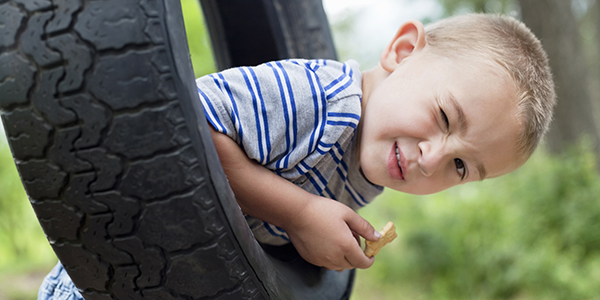
January 6, 2016, by Emma Thorne
Research project studies tic ‘habits’ in children with Tourette Syndrome
Academics at the University have embarked on a two-year research project (LoTUS) aimed at further understanding how tics develop – and become difficult to overcome – in children with Tourette Syndrome (TS).
Led by Professor Georgina Jackson in the Institute of Mental Health, the work is funded with a £97,651 grant from the national charity Action Medical Research and Great Ormond Street Hospital Children’s Charity and could lead to improvements in assessing children for behavioural therapies.
It is exploring the idea that children with TS may be better than children without the condition at learning habits, and this may become ingrained, and difficult to change.
Around one schoolchild in every 100 is affected by TS, an inherited neurological condition which leads to them developing tics – involuntary and uncontrollable sounds and movements.
Professor Georgina Jackson said: “Tics typically start off as something fairly simple, for example, a single movement or vocalisation and it may be several years before that tic develops into something more complex.
A child’s repertoire of tics tends to start to build in complexity and reaches maximum intensity around the age of 11 or 12 years old. Then for some children performing these tics becomes much more ritualistic and compulsive and difficult to tackle.”
While children with TS do not have inherent learning difficulties linked to their condition, tics can draw unwanted attention to the child and often lead to them being bullied or socially excluded meaning they are often unable to fulfil their potential in the classroom and their education is affected.
The researchers are using a task-based computer game to assess the abilities of children with TS aged between nine and 16 years old. The children will be asked to control a car with a mouse and to adapt to keep the car on track as the game forces it to deviate from its course. Their results will be compared to age-matched children without the condition.
The children will then come back and repeat the task, meaning that the researchers will be able to assess not only how quickly they learned to adapt but also how well they were able to retain the information.
They will also be tested on whether they can adjust if the game forces the car to deviate in the opposite direction to assess whether they can break the previous learned ‘habit’.
Current treatments are not always effective for all patients and medications can have unpleasant side effects. The game could be effective at identifying children who may be suitable for Habit Reversal Therapy (HRT). HRT is based on the idea of breaking the uncomfortable feeling which children get just before they tic by encouraging them to do something else instead when they experience the sensation, giving them a strategy to deal with the unwanted behaviour.
No comments yet, fill out a comment to be the first

Leave a Reply